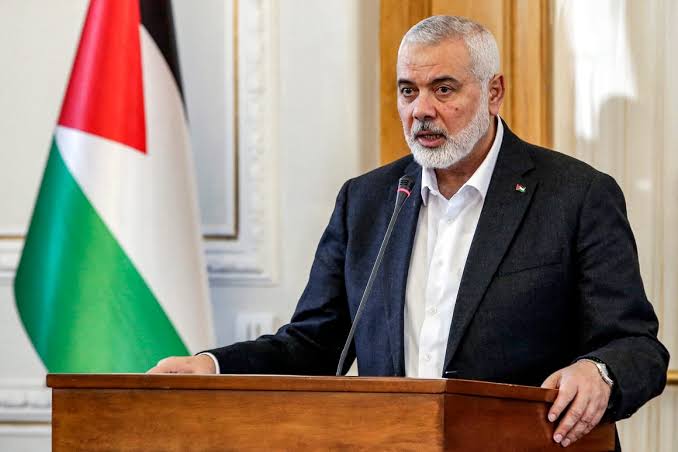Tensions Escalate as Hamas Leader Ismail Haniyeh is Killed in Tehran
Tehran, July 31, 2024 — In a dramatic turn of events that has exacerbated the already fraught tensions in the Middle East, Ismail Haniyeh, the prominent Hamas political leader, was killed in a targeted strike while staying in Tehran, according to a Hamas spokesperson. Khalil al-Hayya, Hamas' deputy head, confirmed that Haniyeh was directly struck by a rocket in his accommodation, vowing that the group’s military wing, the Al Qassam Brigades, would ensure that the assassination “will not go unaccounted for.”
Iranian state media initially reported the death as the result of an “airborne guided projectile,” though the specifics of the weapon remain unclear. In response, al-Hayya declared in a press conference that Israel would “pay the price” for what he termed a “heinous crime,” despite Israel’s silence on the incident and its denial of responsibility.
In the wake of Haniyeh's assassination, Palestinian Authority President Mahmoud Abbas extended his condolences to Khaled Meshaal, a senior Hamas leader and one of the group's founders, through the official Palestinian news agency WAFA. This gesture of solidarity highlights the strained relations and complex political dynamics within Palestinian politics, as the PA, dominated by the Fatah party, and Hamas, which governs Gaza, have been at odds since 2007.
Israeli Foreign Minister Israel Katz, in a statement addressed to international counterparts, emphasized that Israel is not seeking an “all-out war” and urged adherence to UN Security Council Resolution 1701, which ended the last conflict between Israel and Hezbollah. Katz’s comments did not address the ongoing escalation linked to Haniyeh's death or the recent killing of a senior Hezbollah commander, which Israel has claimed responsibility for.
The Iranian government has been quick to blame the US for Haniyeh’s death, condemning Washington as a key ally of Israel. Iran’s foreign ministry, through a pointed Telegram statement, accused the US of supporting Israeli aggression and vowed to retaliate against what it termed an “aggressive action” against its sovereignty.
Amidst the turmoil, the US has distanced itself from the incident, with Secretary of State Antony Blinken stating that the US was “not aware of or involved” in Haniyeh's killing. This position underscores the complex web of alliances and enmities that define the region’s geopolitical landscape. The US continues to support Israel militarily while also expressing concerns over the humanitarian impact of ongoing violence in Gaza.
Senior Iranian diplomats have hinted at a forthcoming response to Haniyeh's assassination, signaling potential “special operations” aimed at instilling significant regret in the perpetrators. The country’s ambassador to Lebanon, Mojtaba Amani, has assured that Tehran will not allow the region to fall prey to US and Israeli interests, but has sought to clarify that its actions will not escalate the conflict beyond its current scope.
Haniyeh’s recent visits to Tehran, including a May appearance at the funeral of former Iranian President Ebrahim Raisi and an inauguration event for President Masoud Pezehkian, had underscored his pivotal role in the region's power dynamics. His assassination is seen as a severe blow to Hamas and has intensified the regional conflict that has long simmered beneath the surface.
In Gaza, the news of Haniyeh's death has been met with widespread grief and anger. Palestinians have expressed deep sorrow and outrage, with many viewing the assassination as an attack on their collective identity and struggle. Political analysts describe the killing as a significant escalation, reflecting the broader, unresolved tensions between Israel and its adversaries in the Middle East.
As the region braces for potential repercussions, the world watches closely, grappling with the shifting alliances and intensifying conflicts that characterize the Middle Eastern geopolitical landscape.

